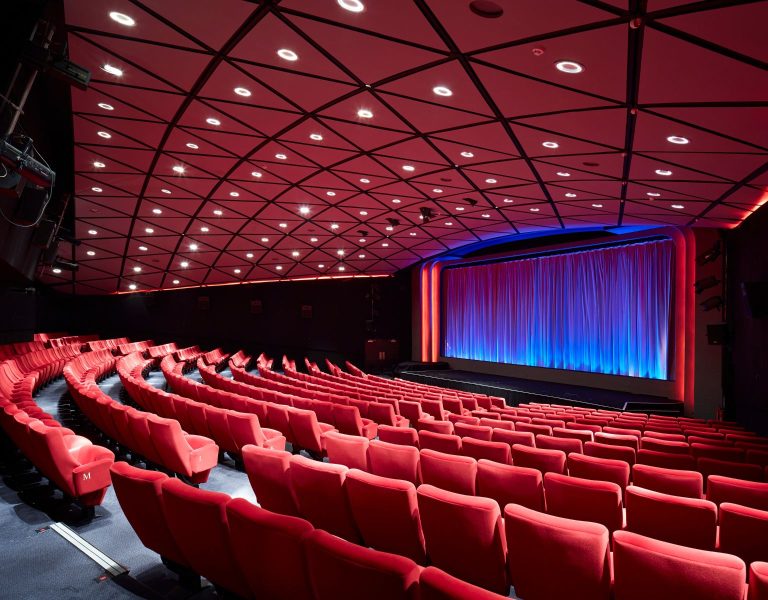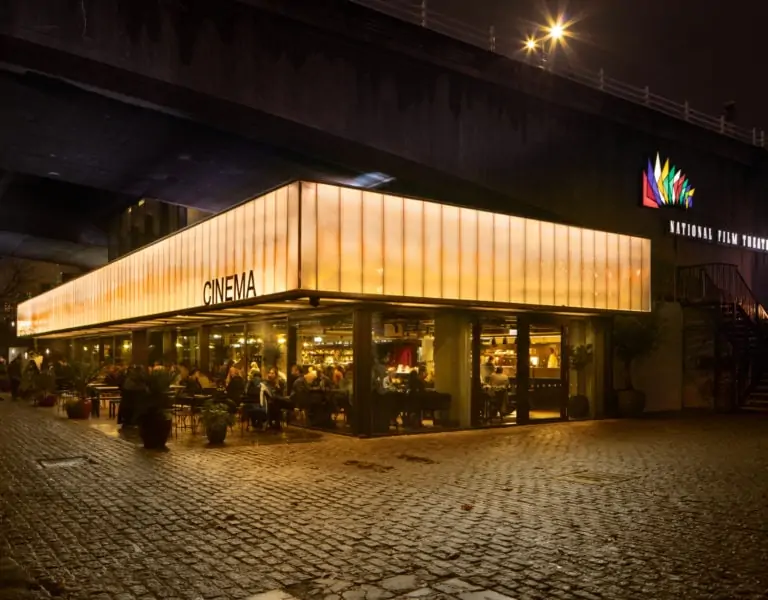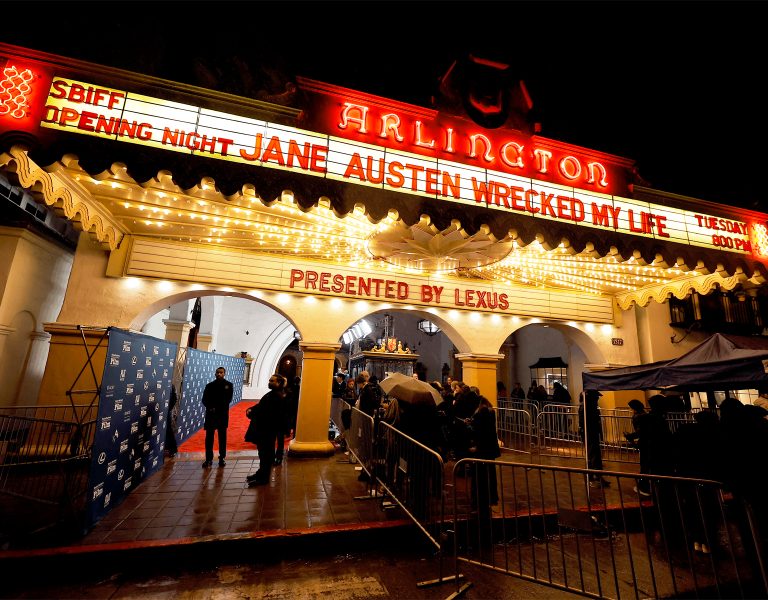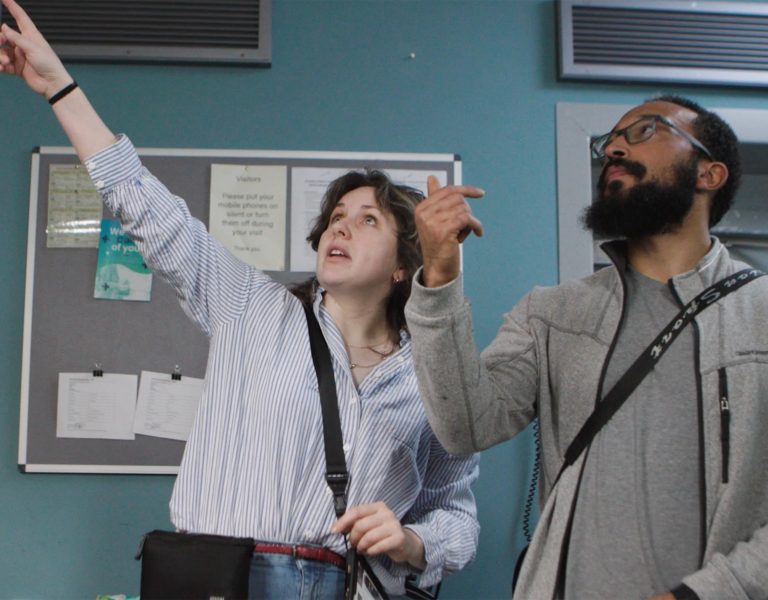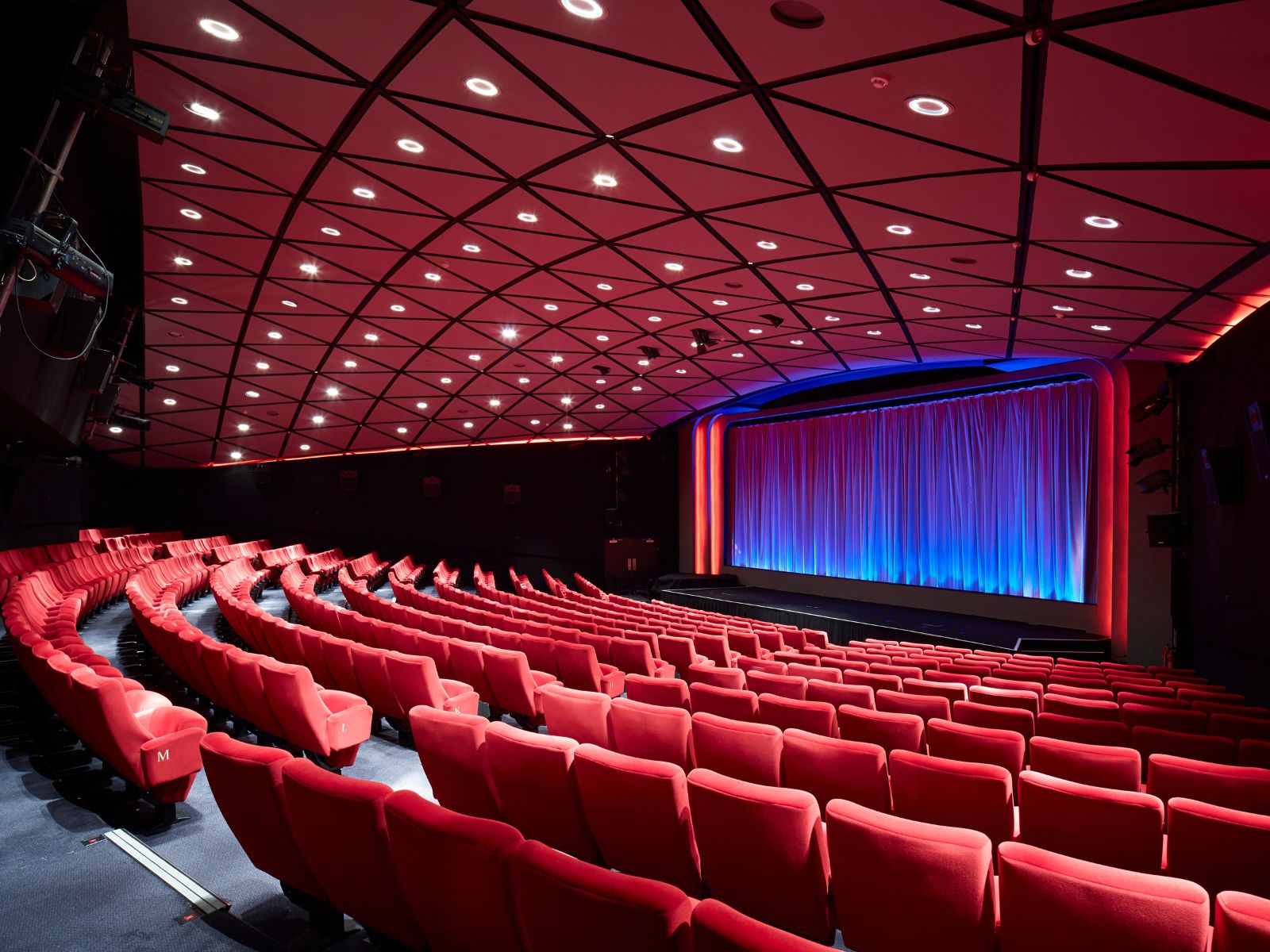
A new study commissioned by the BFI and the Creative Industries Policy and Evidence Centre (Creative PEC) shows that whilst cinemas are already known to be amongst the most widely accessed and enjoyed venues for people to experience culture and entertainment, contributing over £1 billion a year in GVA* to the UK economy, until now there has been no robust analysis to evaluate their value to society through the wider range of valuable and enriching experiences that cinemas provide.
Using valuation techniques derived from the DCMS’s Culture and Heritage Capital framework, Measuring the Economic Value of Cinema Venues, finds that the cinemas within the study delivered significant and positive wider value to society equivalent to £600k per cinema every year, amounting to £5.18 million over 10 years.
This social value is in addition to the value generated by cinemas through ticket and other sales and memberships, which for the average UK cinema has been estimated to be £1.18 million a year.
Within the research for the new study, a survey reveals that hypothetically faced by the scenario that a cinema in question would have to close permanentlyould be willing to each pay1 £18 on average a year – over twice the cost of an average cinema ticket – to a voluntary fund just to keep the cinema venue operating.
Cinemas are clearly seen as important cultural and community assets. Almost two-thirds (63%) of survey respondents stated that the study cinema venue contributes to “their sense of pride in the area where they live”. Beyond this, the report establishes that cinemas are likely to drive footfall and spending in other venues, indicating that they can make an important contribution to revitalising high-streets.
Whilst cinemas face uncertain times in the current economic landscape, even when taking into account the growth and development of digital streaming, BFI research shows that the public retains a strong recognition that cinemas, of which there are over 800 in the UK, are the best way to experience films. Audience surveys indicate that six out of ten UK adults (63%) visited the cinema at least once in 2022.
This year the phenomenal successes of Barbie and Oppenheimer have shown at times how cinemas play to packed audiences and the BFI’s latest published statistics show that to date 2023 is seeing an upturn in admissions. However, since the dramatic fall in cinema attendance during the pandemic lockdowns, audiences have been slow to return and remain far below pre-pandemic levels. Last year’s 117 million admissions were still 33% behind a pre-pandemic 2019 which registered 176 million admissions.
Rishi Coupland, BFI Director of Research and Industry Innovation, says: “We already know that cinemas are amongst the most widely accessed and enjoyed venues for the public to experience culture and entertainment but for the first time, the results from this study provide a robust analysis of the social benefits year they contribute to cinema-goers and communities which is equivalent to £600k of additional value per cinema every year.
“As social spaces and through programming they can offer opportunities for community cohesion and individual exploration and learning. They also often drive commercial activity that supports surrounding businesses and are an important source of pride-in-place indicating that cinemas can make an important contribution to revitalising high streets. This study will be an invaluable tool in helping public and commercial bodies alike ensure the continued cultural and societal success of cinemas.”
Hasan Bakhshi, Director Creative PEC, says: “Going to the cinema is one of the most popular cultural activities in the country, notwithstanding the challenges for venues presented by the pandemic. Our new research shows that the public derives significant value from cinemas over and above what is reflected in the prices they pay for tickets, such as in the contribution that cinema venues make to pride in place. The Study adds to the growing bank of estimates on the economic value of cultural and heritage assets which is being coordinated by the DCMS’s Cultural and Heritage Capital Framework: an important attempt to put investment in culture and heritage on the same rigorous footing as other capital assets. There are obvious challenges in placing monetary value on complex assets like cinemas and theatres, however when done with due care, it strengthens the economic case for investing in culture.”
The study focussed on six cinemas in a range of locations selected for all having a cultural value offer in addition to their mainstream cinema programming. This was defined as: operating in a cinematic or cultural cold spot with no alternatives within a 5km radius; offering a destination café, bar or restaurant defined for the study as a social hub; or providing a significant portion of non-mainstream programming. Assessing these particular types of cinema venues provides a sense of the characteristics which make using a cinema venue a valuable and enriching experience.
The selected cinemas which participated in research were:
- Broadway, Nottingham
- Cameo, Edinburgh
- Everyman, Cardiff
- Light, New Brighton
- Ritzy Cinema and Café, Brixton, London
- Vue Cinema, Glasgow Fort
Users of these six cinemas were surveyed and the results were analysed using established economic techniques in order to calculate the social benefits that they provide and which could applied to others cinemas similar to those in the study.
The study’s findings include the following:
- Cinemas which align with one of the three groups considered by the study generate at least £600k of additional social value a year each, a previously unmeasured economic benefit as valued directly by the public. This is in addition to the £1.18 million a year of market value on average known to be generated a year by a cinema through ticket and other sales.
- Cinemas are clearly seen as important cultural and community assets. Almost two-thirds (63%) of survey respondents said that the study cinema contributes to ‘their sense of pride in the area in which they live’3.
- Based on survey results, cinema-users would pay £18 on average each a year – over twice the cost of an average cinema ticket – towards keeping the cinema venue in question operating. This figure indicates that cinemas are valued a level at least comparable to the level that regional theatres by their audiences according to previous research.
- Cinema venues are found to provide a hub, or focal point around which people engage with an area. Going to the cinema is likely to drive footfall and spending in other venues. The majority (55%) of respondents usually eat or drink at a different venue as part of their cinema visit; a similar number (53%) say they often go shopping as part of a typical cinema trip.
- Across all three cinema groups, only a very low proportion of respondents (2% or less) report not engaging in other activities as part of their cinema trip, highlighting how cinema visits are integrated into wider social and cultural experiences.
- Some respondents report higher levels of engagement with other culture and heritage activities such as visiting a museum, a historic building or a local park. They may also visit a pub or a bar.
- All three types of cinemas considered in the study demonstrated strong, measurable non-market value, at least comparable to figures found in a previous regional theatres study.
– Users of cinemas showing diverse programming on average were willing to pay with an annual donation value of £13.59 and 67% agreed that the cinema contributed to a sense of pride in the area.
– Users of cinemas in cinematic or cultural cold spots on average were willing to pay an annual donation value of £14.56 and 53% agreed on a sense of pride in the area.
– Users of cinemas categorised as being social hubs on average were willing to pay an annual donation value of £23.98 and 70% agreed on a sense of pride in the area.
By looking at different types of cinema, the study demonstrates that the value of cinemas is positive and comparable across different programming and ownership models (eg, whether commercial or subsidised, or whether part of a chain or independent), providing an important source of value.
What people watch
In cold spot locations, 24% of respondents said they watched independent English language films (not backed by US studios) at the cinema; 21% watched archive or classic films from the past; and 20% said they made use of the cinema space for community activities.
In the social hub cinema locations, 31% of respondents said they watched archive or classic films from the past; 30% watched independent English language films (not backed by US studios); 28% watched foreign language/world cinema films; and 28% used spaces that are part of the cinema for viewing performance (eg comedy) or social participation (eg film quizzes or open mic nights).
For cinemas providing diverse programming, 41% of respondents said they watched independent English language films (not backed by US studios); 40% watched archive or classic films from the past and 38% watched foreign language/world cinema films.
Further value
The study does not suggest that it provides a complete picture of the value that cinemas offer overall. For instance, it does not calculate or take into consideration wider spending in the local economy, suggesting cinemas create even greater value than has been estimated. The 2021 Arts Council England report Culture and High Streets found that “Culture is a vital ingredient for successful high streets” and also that “cinemas, museums, theatres, libraries, music venues and art galleries all make some people more likely” to visit town centres; the data in this study reinforces the key idea that cinema venues similar to those in this study can play an important part in revitalising and sustaining places such as high streets.
Measuring the Economic Value of Cinema Venues was jointly commissioned by the BFI and the Creative PEC working with research consultancies Ipsos, Nordicity and the Bennett Institute at Cambridge University.
